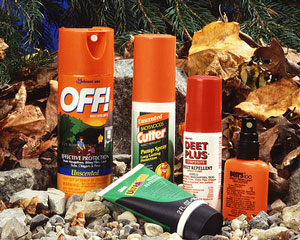Protect Children From Household Pesticides
By Chris Williams on May 30, 2013.
 Some people believe that the pesticides they buy over the counter to kill household pests like ants, flies, cockroaches, and mice won’t harm people. While some products are of very low toxicity to humans, EPA points out that there is no such thing as a “safe” pesticide. By their very nature, pesticides are toxic chemicals that are designed to kill pests.
Some people believe that the pesticides they buy over the counter to kill household pests like ants, flies, cockroaches, and mice won’t harm people. While some products are of very low toxicity to humans, EPA points out that there is no such thing as a “safe” pesticide. By their very nature, pesticides are toxic chemicals that are designed to kill pests.
People are surprised to learn that “household pesticides” include more than just the products used to kill insects and rodents. Household pesticides also include herbicides or weed killers (toxic products that kill plants), bath and kitchen disinfectants and sanitizers (toxic products that kill germs), and fungicides (toxic cleaning products that kill mold or mildew). Any of these products has the potential to harm a child.
Many parents still store pesticide products, including these household cleaners, within the reach of children. Each year thousands of children under the age of six are poisoned by common household pesticide products. Play it safe. With some simple prevention steps, you can make sure that your children are protected from accidental poisoning.
- Keep all pesticides in their original containers with their original labels. Never put poisonous products in containers that could be mistaken for food or drinks.
- Lock up all pesticides and harmful products in a cabinet, out of a child’s reach. Install safety latches on cabinets.
- Crawl around on your hands and knees to see if you’ve missed any potential dangers from your child’s viewpoint.
- When using a pesticide, read the label first and follow all directions. If you are interrupted during application by a doorbell or phone call for example, re-close the container and make sure it is out of your child’s reach while you are absent.
- Use child-resistant packaging correctly by tightly sealing the container after every use. Teach children that “pesticides are poisons” and not to be touched.
- Post the Poison Control Center’s national hotline phone number (1-800-222-1222) near your home phone and program it into your cell phone.